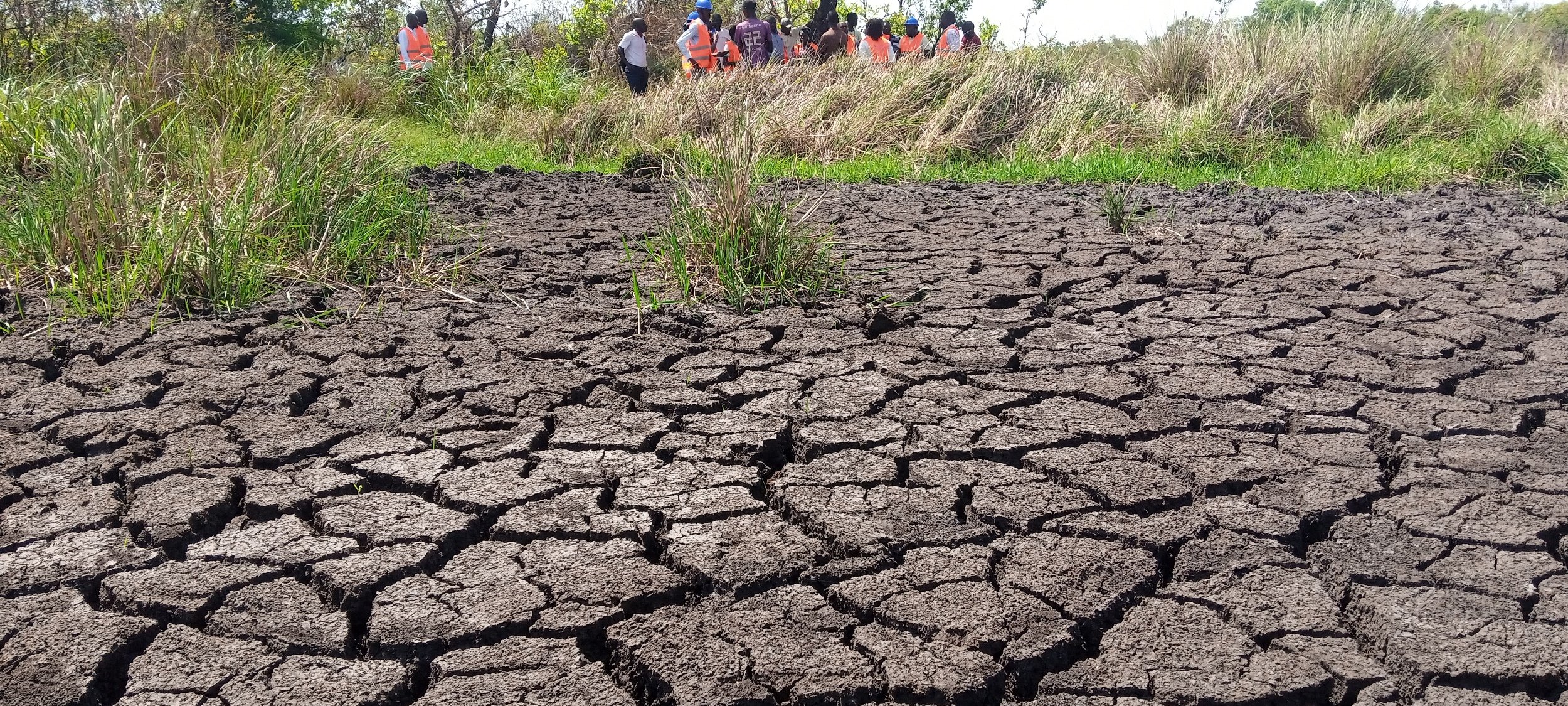Prime
Experts warn of hotter days ahead

A farmer in Alito Sub-county, Kole District, shows his soybean garden that was scorched by the dry spell on August 6. PHOTO/FILE
What you need to know:
- This means people should have lifestyle adjustments such as increased water (fluid) intake and wearing light-coloured and lightweight clothes to reduce health risks.
The temperature forecast by the Intergovernmental Authority on Development (IGAD) weather unit indicates that Uganda could continue to experience “warmer than usual conditions” throughout this month.
For the heat stress index, the IGAD Climate Prediction and Applications Centre (ICPAC) data for the week running from March 19 (today) to March 26 shows that most areas in West Nile, some parts of northern and southern parts of the country, and some spots in eastern and southwestern Uganda are falling in extreme caution zones (heat exhaustion). But most parts of the country are in the caution zone (heat fatigue with prolonged exposure) with only a few spots in Kisoro and Kabale expected to be free from heat stress.
This means people should have lifestyle adjustments such as increased water (fluid) intake and wearing light-coloured and lightweight clothes to reduce health risks and other inconveniences associated with elevated temperatures.
The projection for March by ICPAC shows that Uganda, Tanzania and Kenya would experience temperatures reaching as high as thirty-two degrees centigrade (32°C) with some areas experiencing higher temperatures above the normal average.
“In the specific projection for the week running from March 19 (today) to March 26, moderate to high temperatures (20 to 32 degrees centigrade) [are] expected over most parts of Tanzania, Uganda, Kenya, Somalia, Djibouti, Eritrea, Ethiopia and central to southern Sudan. High temperatures (above 32 degrees centigrade) [are] expected over most parts South Sudan, and a few regions in western Ethiopia and north-western Kenya,” ICPAC projection indicates.
The projection also shows that the general temperatures in Uganda will range from 20 degrees centigrade to the high of 31 degrees centigrade with northern and some eastern parts of the country experiencing some of the highest temperatures. Temperature abnormalities will also be experienced in almost all parts of Uganda with some areas experiencing temperature elevation of as high as 2 degrees centigrade.
This news comes two days after the South Sudan government reportedly closed schools because of extreme heat, reaching as high as 45 degrees centigrade. This, according to health experts, exposes people to the risk of heat stroke and heat exhaustion which can kill a person or significantly affect a person’s health.
“This is a wake-up call for us, as leaders, to join forces in the fight against global warming,” Ms Anita Annet Among, the Speaker of Parliament, said on Tuesday on X, formerly Twitter.
“Each tree planted can make a significant difference in combating climate change. As Parliament, we are committed to spearheading a tree-planting initiative, and we implore everyone to join us in this crucial endeavour,” she added.
Risks
Heat stress, experts warn, when experienced for a prolonged period, reduces productivity at the workplace, and causes the thickening of the blood (clotting) resulting in heart attack and stroke. The other risks include kidney failure and exacerbation of respiratory conditions.
The Director of China-Uganda Friendship Hospital, in Naguru, Dr Emmanuel Tugaineyo, said people should protect themselves from direct sunshine and take more water.
“You should keep hydrated with enough water. For children at school, administrators should provide them with a point of drinking water so that they are kept hydrated. All our organs require water to function well,” he said.
“A big percentage of our body is made of water. Children need water faster than adults because they lose water faster. Administration can also control the children from playing when the sun is hot to minimise their exposure to heat and sunshine,” he added.
The Director of Clinical Services at the Health ministry, Dr Charles Olaro, linked elevation in temperatures to climate change. He noted that there is a prescription for drinking two to three litres of water daily.




